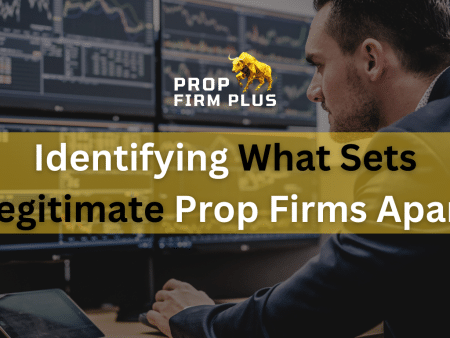
Although both entail active trading in the financial markets, hedge funds and prop trading firms are not the same in terms of their investment methods, regulation limitations, and financial sources. Hedge funds look after investor money to provide profitable returns, whereas prop trading is primarily concerned with using the capital of the company to make money through trading.
Comprehending the differences between hedge funds and prop trading will assist you in making well-informed choices when evaluating different financial market investing options.
Understanding Prop Firms
Prop trading, an acronym for proprietary trading, is the practice of a financial organization using its capital to make money. It enables traders to make investments in a wide range of assets, including bonds such as futures contracts, equities, and currencies. Proprietary trading carries risk and is governed by many laws and guidelines.
Proficient traders engage in speculative transactions within a prop trading account associated with a hedge fund or brokerage. The best prop trading firms make far more funds available to talented traders. Traders typically keep a share of the commission from profitable trades.
Understanding Hedge Funds
Hedge fund managers employ a variety of tactics, such as leveraged trading, to generate profits for their customers. They are somewhat more constrained than prop traders who must in turn meet the company’s profit goals as they have to maintain customer satisfaction. In order to turn a profit, hedge funds combine investor capital and are actively managed.
Investing in hedge funds is taking a risk and putting your faith in the hedge fund management. The top hedge fund managers cultivate a solid reputation in order to gain investors’ confidence and competence.
Hedge Fund and Prop Trading: Primary Distinctions
Prop trading and hedge funds operate in essentially different ways. Among the primary differences between them are:
Financing
Prop trading firms supply the money that traders need to make investments. Hedge funds, on the other hand, receive funding from a wide range of sources, including corporations, individual investors, and other outside parties.
Fees
The fee structure used by hedge funds is known as “two and twenty”; it consists of a 2% charge for assets under management plus a 20% performance fee. Many hedge funds have modified or cut their fee structures in order to stay competitive.
Prop firms, on the other hand, operate according to a separate framework and divide traders’ profits. They, for instance, demand initial application fees and deposit charges in addition to taking a cut of the trader’s gains.
Accountability
Because they make trades with both client assets and capital from outside sources, hedge funds are held to a higher standard of accountability. Prop trading firms, on the other hand, give traders access to the company’s capital so they can make trades. Prop trading gives traders access to funds, which modifies the accountability system.
Apart from investor accountability, prop trading firms and hedge funds adhere to different requirements. Prop trading companies, for instance, are subject to less regulation than hedge funds due to the latter’s direct relation with actual clientele.
Risk
Because traders use the firm’s funds to trade, proprietary trading carries a higher risk. Prop trading organizations frequently take up riskier activities, like employing leverage and making option investments. Hedge funds actively manage risk in order to safeguard both the fund and investors, even if they also make riskier bets.
The Bottom Line
All things considered, hedge funds and prop trading employ a range of profit-making techniques. Prop trading is a type of investing that emphasizes quick returns and usually makes use of leverage. In contrast, hedge funds have the flexibility to utilize a diverse range of approaches aimed at producing continuous profits.
Hedge fund managers may have a longer-term perspective and be prepared to wait out market cycles, but prop traders take risks by attempting to outsmart the stock market quickly. Although prop trading has significant potential for financial gain, there are also significant hazards involved. Although hedge funds are less risky than prop trading, they might not offer the same opportunity for rapid returns.
In the end, both trading strategies have distinctive chances for investors; therefore, they should carefully assess their wants and ambitions before selecting the trading strategy that best suits them.










